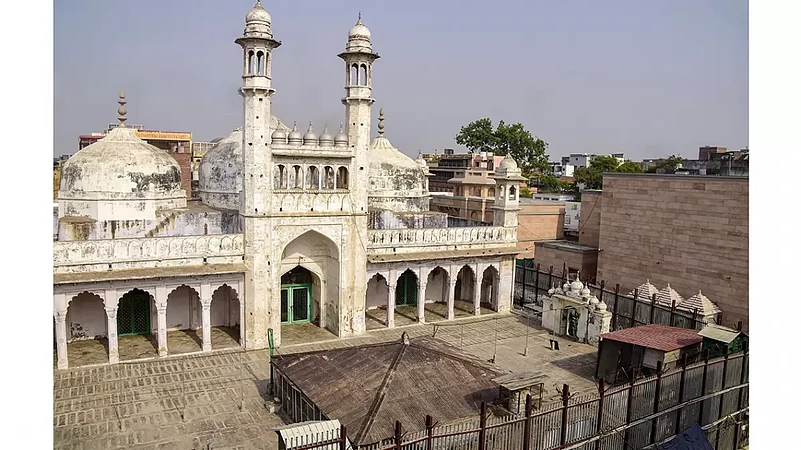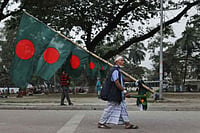The lawyer for a group of Hindu women argued in the Allahabad High Court Tuesday that the 1937 Deen Mohammed suit in which the petitioner sought the Gyanvapi mosque complex be declared Waqf property did not apply in this case.
Even in that suit, the plaintiff's witness admitted that a regular puja was being carried out by Hindus at that place and the British government agreed, the counsel argued.
The petitioners are seeking the right to regular worship of the idols of deities located on an outer wall of the mosque in Varanasi.
The Allahabad High Court will continue to hear on December 14 a civil revision petition of the Anjuman Intezamia Masajid Committee (AIMC). The petition has challenged a Varanasi court order turning down its objections to the maintainability of the suit filed by five Hindu women.
Earlier, AIMC had opposed the Hindu side's plea before the lower court, arguing that it is barred under the Places of Worship Act, 1991, which provides that no suit can be filed seeking conversion of any religious place as existed on August 15, 1947.
The district judge Varanasi had on September 12 dismissed the AIMC plea while observing that the suit is not barred by the Places of Worship (Special Provisions) Act, 1991, The Waqf Act 1995, and the UP Shri Kashi Vishwanath Temple Act, 1983, as was being claimed by the AIMC.
-With PTI Input






















